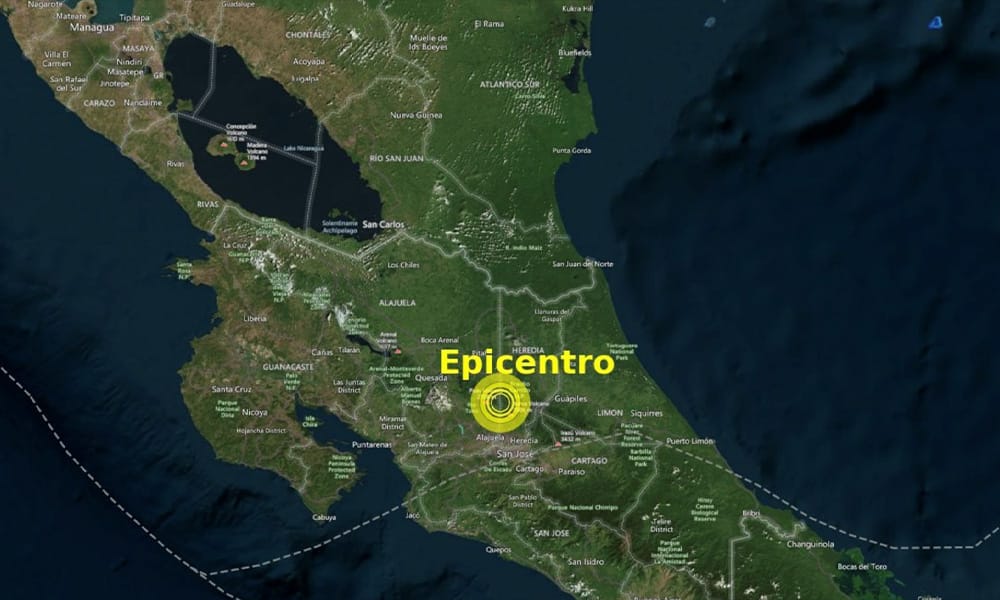The Volcanological and Seismological Observatory of Costa Rica indicated that there have been a large number of aftershocks following the earthquake reported in Varablanca over the weekend.
“There have been 130 aftershocks, of which 80 have been located with magnitudes between 0.7 and 3.5. Most occurred on the same day as the main quake. The main characteristic of these earthquakes is that they are located in the first 10 km of depth, between San José de la Montaña and Virgen del Socorro de Sarapiquí,” indicated the experts.
In addition, experts emphasized that despite the proximity of the Poás Volcano, the earthquakes have not impacted the volcano’s activity.
On Sunday afternoon, another strong earthquake was reported. According to the National Seismological Network, at 4:56 p.m., a 5.2 earthquake was reported.
OVSICORI director, Marino Protti, explained that the tectonic activity responds to deformation associated with a local fault.
“The Cinchona earthquake of 2009 occurred close to this region and therefore demonstrated a very intense tectonic fracturing between these two volcanoes,” explained the seismologist.
Earthquakes are frequent in Costa Rica, located on the Coco and Caribe tectonic faults.
“We cannot anticipate what can happen. We have a Seismological Network that allows us to detect where the events occur and a Geological Network that allows us to see the places where energy accumulates. However, we cannot identify where energy is accumulated in the faults inside the country,” Protti explained.
The expert also recalled that these terrains are prone to seismic activity.
“It would be normal for more earthquakes to occur in this area. There may be seismicity that is triggered by nearby faults. Today’s earthquake occurred in an area with many active faults, so it is likely that others will occur, and they are generally of smaller magnitudes than the main one,” they explained.
The road to the area remains open, and despite rumors, no closures have been announced by the corresponding authorities.






